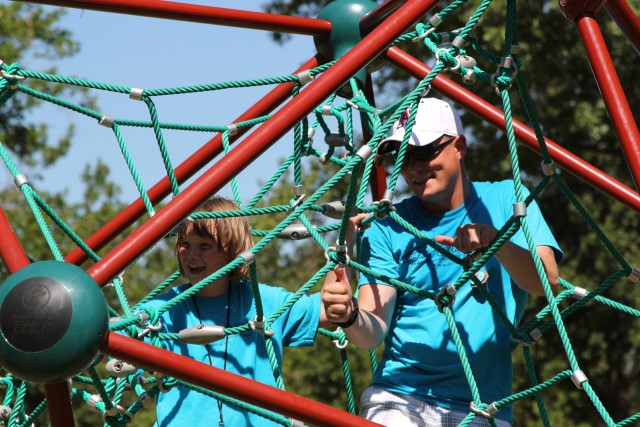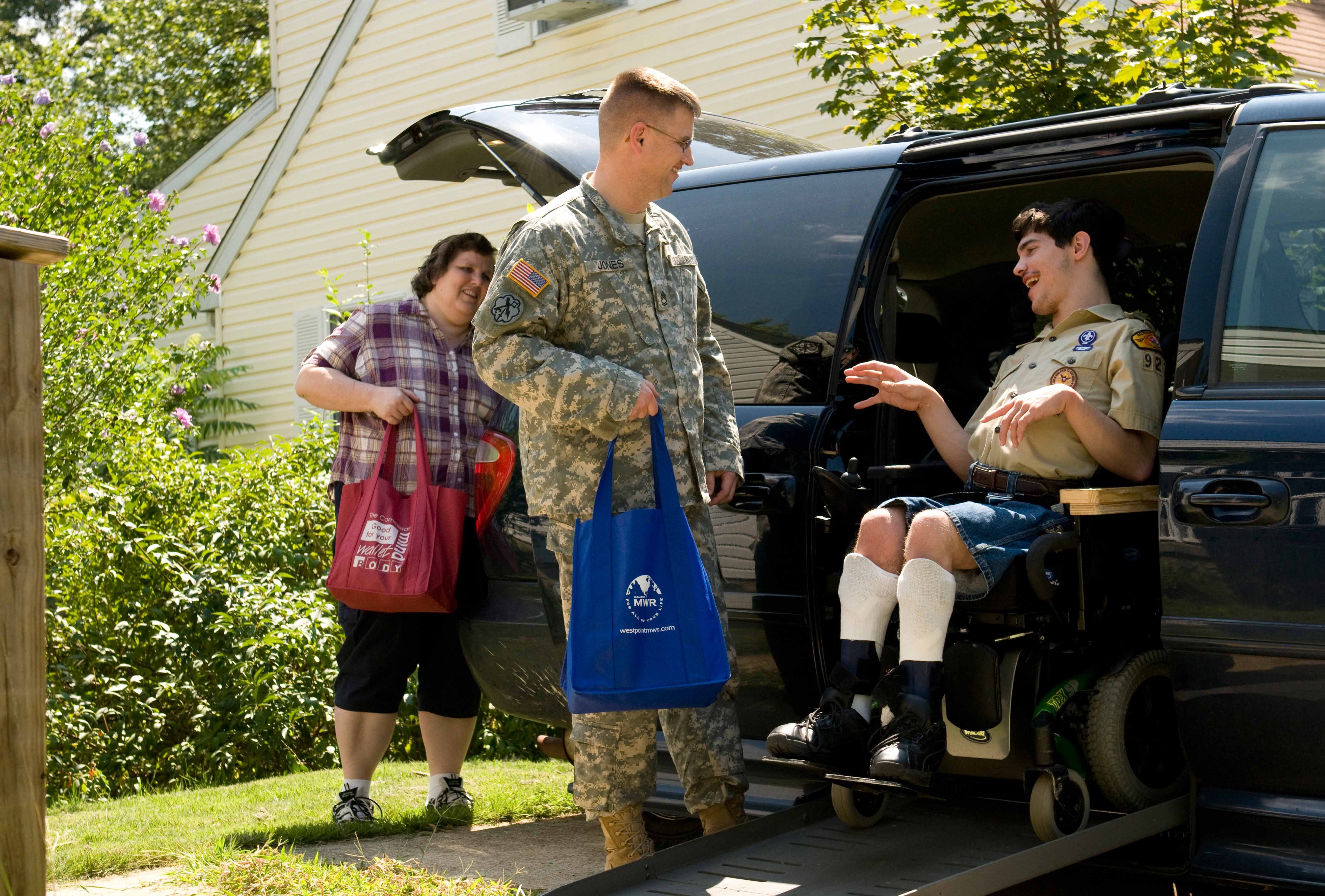BECAUSE Soldiers and their Families often report to a new duty assignment before seeking community services, the Exceptional Family Member Program is now reaching out to them through unit Family readiness support assistants.
EFMP is a mandatory enrollment program that works with other military and civilian agencies to provide comprehensive and coordinated community support, housing, medical, educational and personnel services to Families with special needs.
"FRSAs, part of the commander's Family readiness team, provide administrative support to the commander, rear detachment commander, and volunteer Family Readiness Group leader," said Sharon Fields, the Family and Morale, Welfare and Recreation Command's EFMP program manager. "We're now training them to work with the EFMP through Army Community Service.
"The unit is the first place where a Soldier reports. If he has concerns about one of his children, the FRSA will be readily available to be a guide for on-base and community resources," Fields added.
An exceptional Family member is a child or adult with any physical, emotional, developmental or intellectual disorder requiring special treatment, therapy, education, training or counseling.
All active-duty servicemembers must register with EFMP as soon as a Family member is identified as having special needs. The program, standard across all services, documents the services the EFM requires, and considers those needs during the personnel assignment process (especially when approving Family members for accompanied travel to overseas locations).
Working closely with the personnel and medical commands and the Department of Defense educational system overseas, EFMP prevents hardship by ensuring the servicemember and Family have all the support they need in the receiving duty station before they have a permanent change of station.
Army Families deal with unique challenges associated with military life, especially when it comes to relocation, according to Lt. Gen. Rick Lynch, commanding general, Installation Management Command. Not only do Families have to find a new place to call home, they also have to find new health care and child care providers, enroll children in new schools and activities and build new friends and support networks. These challenges are not easy for any Army Family, but for Families with special needs, they are magnified.
"The EFMP is one way we can keep some of the most important promises articulated in the Army Family Covenant: Providing access to high-quality medical care, educational opportunities and Family programs that foster an environment in which Families can thrive," Lynch said.
Two factors have been identified that hinder the effectiveness of the program: Difficulties accessing the appropriate resources, and a fear that being identified in the EFMP will adversely affect a Soldier's career.
They are battling the latter through information campaigns directed at the Army's leaders and Soldiers, clearly stating that the program is designed to help a Soldier develop a successful career while still nurturing the development and quality of life of his exceptional Family member.
"FRSAs have three primary responsibilities when it comes to providing information about EFMP," Fields said. "They direct a Soldier and Family member who needs support services and advocacy assistance to the EFMP manager, refer Soldiers and Family members to the military treatment facility for screening and enrollment, and network with the installation EFMP manager and EFMP MTF staff to assist with information and referrals of eligible Family members."
Access to resources is being addressed through the FRSA training, and through an increase in the number of "system navigator" employees in the IMCOM organization.
IMCOM is adding 44 system navigators to the existing EFMP staff at 26 garrisons, both stateside and overseas. The system navigators will help Families connect to the local, state and federal resources they need.
The 26 garrisons include Fort Hood, Texas; Fort Lewis, Wash.; Fort Bragg, N.C.; Fort Campbell, Ky., and Schofield Barracks, Hawaii-the five installations with the highest number of EFMP Families.
While the EFMP provides an invaluable service to Soldiers and their Families, the Army is constantly seeking innovative ways to enhance support to Families with special needs.
Soldiers and Families need to know that they will be able to find the services necessary for the health and well-being of all their Family members before they depart for a new installation. According to Lynch, this is both part of the Army's promise to Families in return for the sacrifices they make, and its commitment to Soldiers, whose strength and readiness are rooted in the strength of their Families.








Social Sharing